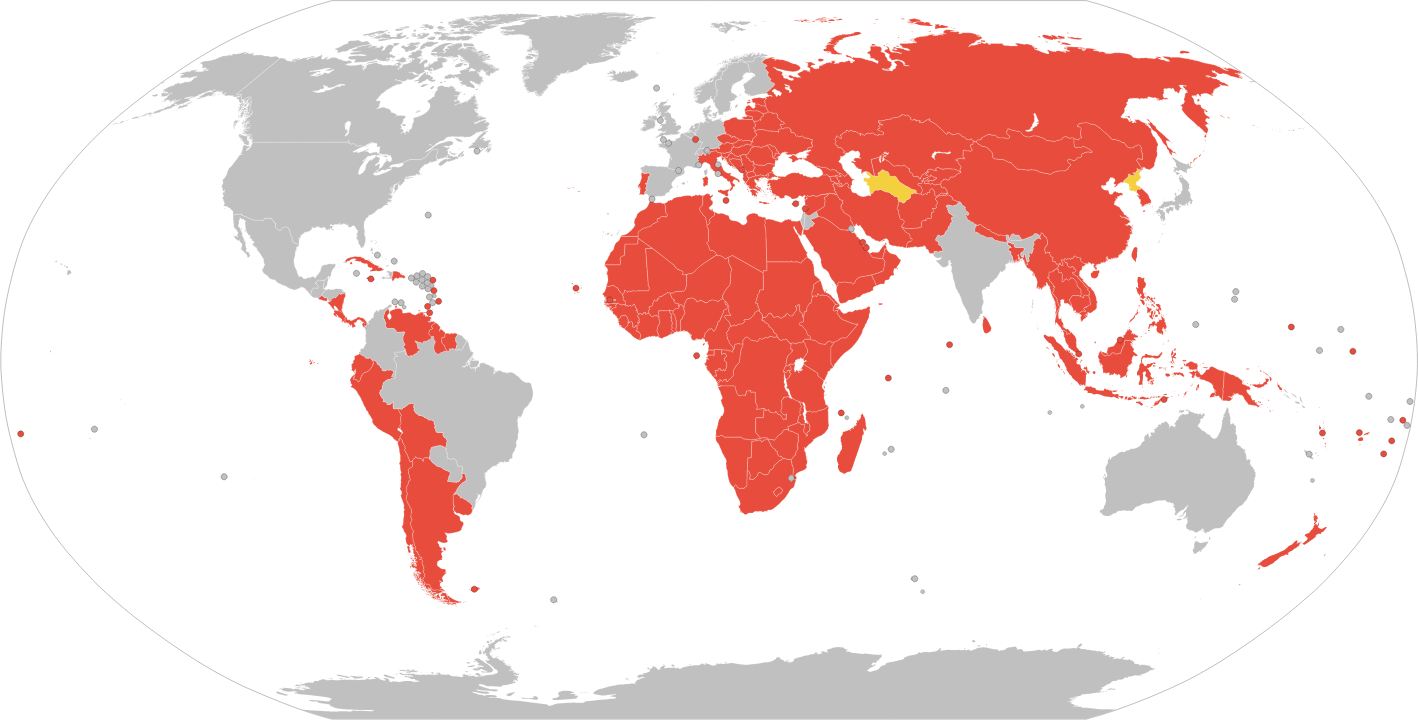m (Added category) |
(added about initial proposal) Tag: Visual edit |
||
| Line 1: | Line 1: | ||
[[File:BRI agreements.png|alt=All countries that either attended a BRI summit (yellow) or who signed cooperation documents related to the BRI (red)|thumb|Countries currently in the Belt and Road Initiative]] | [[File:BRI agreements.png|alt=All countries that either attended a BRI summit (yellow) or who signed cooperation documents related to the BRI (red)|thumb|Countries currently in the Belt and Road Initiative]] | ||
The '''Belt and Road Initiative''' ('''BRI''') is a global infrastructure development strategy adopted by the [[China#Governance|Chinese government]] in 2013 to invest in nearly 70 countries and international organizations. It is considered a centerpiece [[Xi Jinping]]'s foreign policy.<ref>{{News citation|title=President Xi proposes Silk Road economic belt|url=https://www.chinadaily.com.cn/china/2013xivisitcenterasia/2013-09/07/content_16951811.htm}}</ref> | The '''Belt and Road Initiative''' ('''BRI''') is a global infrastructure development strategy adopted by the [[China#Governance|Chinese government]] in 2013 to invest in nearly 70 countries and international organizations. The BRI was initially proposed by China in [[Kazakhstan]].<ref>{{Web citation|newspaper=Xinhua|title=Officials, experts say deepened China-Central Asia cooperation on Belt and Road benefits region, world|date=2023-05-18|url=https://english.news.cn/20230518/864fd60c483c49b0bf4386affd74ae1d/c.html|retrieved=2023-06-28}}</ref> It is considered a centerpiece [[Xi Jinping]]'s foreign policy.<ref>{{News citation|title=President Xi proposes Silk Road economic belt|url=https://www.chinadaily.com.cn/china/2013xivisitcenterasia/2013-09/07/content_16951811.htm}}</ref> | ||
The BRI is one of the many factors which is leading to [[de-dollarization]]<ref>https://moderndiplomacy.eu/2018/04/09/the-de-dollarization-in-china/</ref> the decline of the influence of the [[United States imperialism|US empire]],<ref>{{News citation|journalist=[[Danny Haiphong]]|title=U.S. imperial Decline and the Belt and Road Initiative: The Most Important Global Struggle of the Century|url=https://blackagendareport.com/us-imperial-decline-and-belt-and-road-initiative-most-important-global-struggle-century|newspaper=[[Black Agenda Report]]}}</ref> and enhanced economic growth of [[Non-Aligned Movement|non-aligned countries]].<ref>{{News citation|title=China’s BRI: The REAL Story! Symbol of its Inevitable Rise? With Hussein Askary!|url=https://youtu.be/OGGItLIKL8g}}</ref> | The BRI is one of the many factors which is leading to [[de-dollarization]]<ref>https://moderndiplomacy.eu/2018/04/09/the-de-dollarization-in-china/</ref> the decline of the influence of the [[United States imperialism|US empire]],<ref>{{News citation|journalist=[[Danny Haiphong]]|title=U.S. imperial Decline and the Belt and Road Initiative: The Most Important Global Struggle of the Century|url=https://blackagendareport.com/us-imperial-decline-and-belt-and-road-initiative-most-important-global-struggle-century|newspaper=[[Black Agenda Report]]}}</ref> and enhanced economic growth of [[Non-Aligned Movement|non-aligned countries]].<ref>{{News citation|title=China’s BRI: The REAL Story! Symbol of its Inevitable Rise? With Hussein Askary!|url=https://youtu.be/OGGItLIKL8g}}</ref> | ||
Revision as of 22:08, 28 June 2023

The Belt and Road Initiative (BRI) is a global infrastructure development strategy adopted by the Chinese government in 2013 to invest in nearly 70 countries and international organizations. The BRI was initially proposed by China in Kazakhstan.[1] It is considered a centerpiece Xi Jinping's foreign policy.[2]
The BRI is one of the many factors which is leading to de-dollarization[3] the decline of the influence of the US empire,[4] and enhanced economic growth of non-aligned countries.[5]
The project has a target completion date of 2049.[6]
In 2021, Cuba has joined the BRI project for the purpose of expanding its telecommunications and green energy industries.[7] Syria has also joined.[8] In February 2022, Argentina joined the BRI.[9][10]
Reactions
The BRI has been demonized by Western bourgeois media on the basis that it's a "debt trap"[11] or an example of so-called "Chinese imperialism," but these claims serve only propaganda purposes and are not founded in evidence.[12][13][14]
In response to concerns, the Communist Party of China has sought to improve reporting standards and transparency with their BRI projects so as to increase trust with member countries.[15]
Anti-imperialist journalist Richard Medhurst has reported that China's BRI project is helping to rebuild the economies that have been destroyed by Western wars and sanctions.[16]
References
- ↑ "Officials, experts say deepened China-Central Asia cooperation on Belt and Road benefits region, world" (2023-05-18). Xinhua. Retrieved 2023-06-28.
- ↑ "President Xi proposes Silk Road economic belt".
- ↑ https://moderndiplomacy.eu/2018/04/09/the-de-dollarization-in-china/
- ↑ Danny Haiphong. "U.S. imperial Decline and the Belt and Road Initiative: The Most Important Global Struggle of the Century" Black Agenda Report.
- ↑ "China’s BRI: The REAL Story! Symbol of its Inevitable Rise? With Hussein Askary!".
- ↑ https://www.pr.com/press-release/780645
- ↑ "Cuba Formally Joins China's Belt and Road Energy Partnership" (2021-10-18). TeleSUR.
- ↑ "Syria Officially Joins China's Belt and Road, Seeking Lifeline to Defy U.S. Sanctions" (2022-12-01).
- ↑ "Argentina officially joins BRI in major boost for China-Latin America cooperation" (2022-02-06). Global Times. Retrieved 2022-02-08.
- ↑ Benjamin Norton (2022-02-12). "Trapped in IMF debt, Argentina turns to Russia and joins China's Belt & Road" Multipolarista.
- ↑ "China's debt-trap diplomacy". The Hill.
- ↑ "Debunking the Myth of ‘Debt-trap Diplomacy’". Chatham House.
- ↑ "The Chinese 'Debt Trap' Is a Myth". The Atlantic.
- ↑ "Catagorically Debunking the Claim that China is Imperialist".
- ↑ "China’s response to Belt and Road backlash".
- ↑ "Syria Officially Joins China's Belt and Road Initiative | BRI" (2022-01-25).